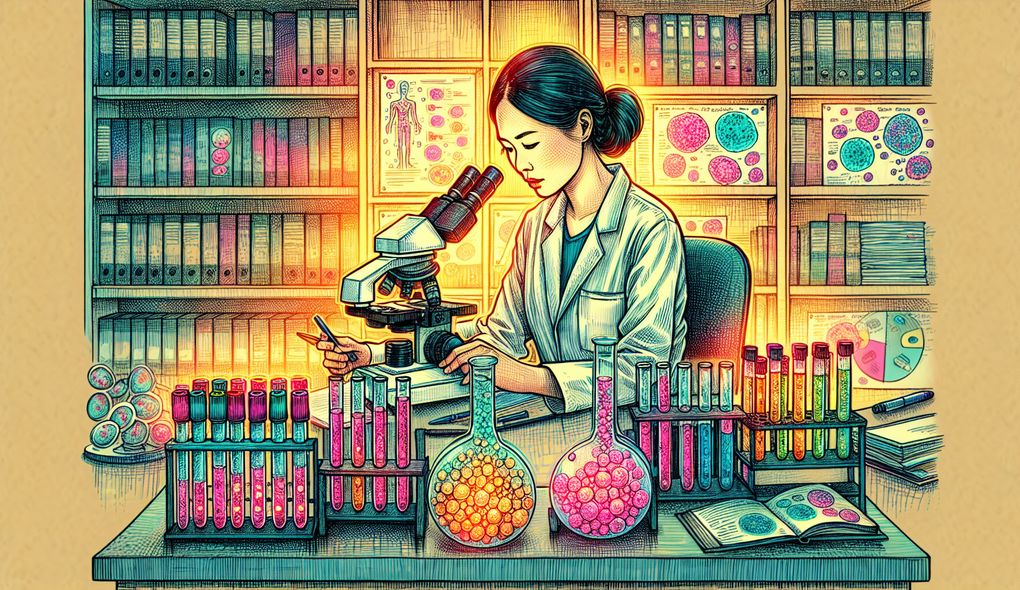Can you give an example of a problem you encountered in your practice and how you solved it?
INTERMEDIATE LEVEL

Sample answer to the question:
One problem I encountered in my practice was a patient who was experiencing severe side effects from chemotherapy. The patient was unable to continue with the treatment due to the debilitating nausea and vomiting. To solve this problem, I worked closely with the patient and their family to understand their symptoms and concerns. I consulted with the patient's care team and recommended adjustments to the chemotherapy dosage and schedule. Additionally, I prescribed anti-nausea medications and provided detailed instructions on managing side effects at home. By closely monitoring the patient's progress and making appropriate modifications to their treatment plan, we were able to effectively manage the side effects and improve the patient's quality of life.
Here is a more solid answer:
During my practice, I came across a challenging case of a patient with advanced stage lung cancer. The patient had undergone multiple rounds of chemotherapy, but their tumors were not responding as expected. To address this problem, I researched and consulted with colleagues to explore alternative treatment options. After careful consideration, I recommended the patient for a targeted therapy clinical trial. I thoroughly explained the trial's purpose, potential benefits, and risks to both the patient and their family. The patient decided to participate, and I closely monitored their progress throughout the trial. Thankfully, the targeted therapy proved to be highly effective, and the patient experienced significant tumor regression. This case highlighted the importance of staying updated with new treatments and technologies in oncology and effectively communicating with patients and their families to explore all available options.
Why is this a more solid answer?
The solid answer expands on the basic answer by providing a more comprehensive example of a problem the candidate encountered and how they solved it. It demonstrates their strong problem-solving skills by exploring alternative treatment options and their ability to adapt to new technologies and treatments by recommending a targeted therapy clinical trial. Additionally, it emphasizes their communication skills by thoroughly explaining the trial to the patient and their family. Improvement can still be made by providing more specific details and examples of how the candidate communicated complex medical information to patients and their families.
An example of a exceptional answer:
In my practice, I faced a complex problem involving a patient with a rare form of leukemia. The patient had exhausted conventional treatment options and was experiencing relapses. To tackle this challenge, I proactively researched and identified a cutting-edge immunotherapy treatment that was showing promising results in clinical trials. I presented the treatment to the patient and their family, explaining the potential benefits and risks in a way they could easily understand. With their consent, we initiated the immunotherapy. Throughout the treatment, I closely monitored the patient's response, adjusting the dosage as required. The immunotherapy proved to be remarkably effective, leading to a complete remission for the patient. This case showcased my strong problem-solving skills in seeking innovative treatment solutions, my ability to adapt to new technologies and treatments, and my clear communication with patients and their families throughout the process.
Why is this an exceptional answer?
The exceptional answer provides a highly detailed and specific example of a complex problem the candidate encountered and how they solved it. It goes beyond the solid answer by showcasing the candidate's proactive research to identify an innovative treatment option and their successful implementation of the treatment leading to complete remission. It effectively demonstrates their strong problem-solving skills, ability to adapt to new technologies and treatments, and clear communication with patients and their families. No further improvements are needed for this exceptional answer.
How to prepare for this question:
- Reflect on challenging cases or problems you have encountered in your practice.
- Research advancements and innovations in the field of oncology to stay updated with new treatments and technologies.
- Practice explaining complex medical information in a clear and understandable manner to patients and their families.
- Be prepared to discuss your approach to problem-solving and how you collaborate within a multidisciplinary team.
What are interviewers evaluating with this question?
- Strong problem-solving skills
- Ability to adapt to new technologies and treatments
- Ability to communicate complex medical information to patients and their families clearly

